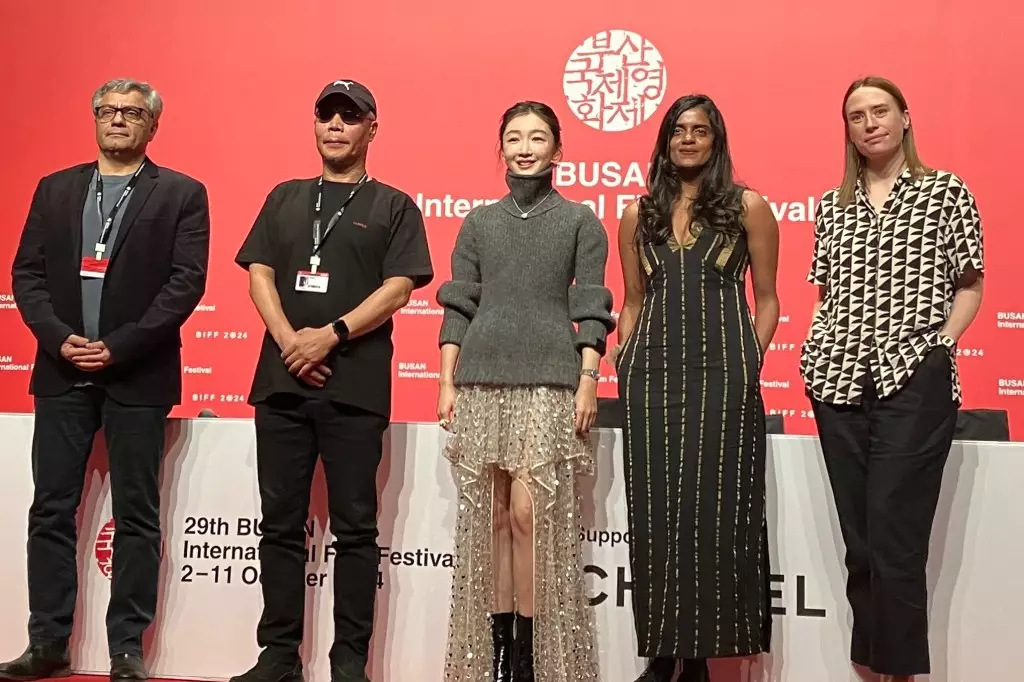Mohammad Rasoulof, a prominent Iranian filmmaker, has recently emerged as a powerful voice amidst the restrictions imposed on the cinematic arts in his home country. Currently living in Germany after fleeing from Iran, Rasoulof serves as the president of the New Currents jury at the prestigious Busan International Film Festival. He has voiced gratitude and optimism concerning Germany’s selection of his latest film, *The Seed Of The Sacred Fig*, as its nomination for the Best International Feature category at the Academy Awards. This selection serves as a significant beacon of hope, especially for filmmakers enduring oppressive censorship regimes. Rasoulof’s journey resonates deeply with an array of artists struggling under similar constraints.
His film, which screened in competition at this year’s Cannes Film Festival and won a Special Award, was nearly jeopardized by Iranian authorities, who sentenced him to eight years in prison for producing it without permission. The Iranian government’s oppressive stance on artistic expression is stifling, and the fact that *The Seed Of The Sacred Fig* was able to find refuge in Germany sheds light on the grim reality for creators who dare to question or criticize through their work. Rasoulof expressed that this nomination is not just a victory for him but symbolizes a broader recognition of the importance of diverse voices in cinema, especially those silenced by authoritarian regimes.
Rasoulof regards the German decision to submit his film to the Oscars as an affirmation of cultural exchange and understanding. Despite being categorized as an Iranian film, the involvement of German producers created a unique scenario where it could shine on an international platform. The fact that the Iranian Oscars selection committee would have never chosen such a film, rife with the critical insights on contemporary Iranian society that characterize Rasoulof’s work, underscores the importance of this foreign endorsement. “This shows they are opening their arms and understanding other cultures and human expression,” he remarked.
By presenting *The Seed Of The Sacred Fig* on a global stage, Rasoulof hopes it will inspire other filmmakers to continue creating, even within their harsh realities. His sentiments also reflect a call to action for audiences worldwide to acknowledge and support films that might not fit within the narrow frameworks dictated by governments. The rich cultural tapestries that films like Rasoulof’s represent remind the world of the underlying human experiences that transcend borders.
As Rasoulof leads the jury at the Busan festival, the challenges faced by filmmakers across the globe become increasingly apparent. Korean director Lee Myung-se noted that the current state of Korean cinema has yet to recover the vibrancy it once had before the pandemic. He indicated that the industry is dealing with underlying issues that affect both the output and the quality of films being produced. Lee’s perspective is rooted in the understanding that challenges in cinema are not merely a matter of external changes but reflect deeper cultural and social concerns that filmmakers need to grapple with. His desire is to identify works that genuinely resonate as ‘real filmmaking’ amid these turbulent times.
The relationship between South Korea and China offers another layer of complexity in this discussion of cultural exchange. Actress Zhou Dongyu, who has previously been part of the Busan festival, expressed optimism regarding the future of cultural cooperation between the two nations. Despite past political strains, Zhou believes that 2025 will mark a renewed era of cultural exchanges, potentially enhancing mutual understanding and collaboration. This sentiment is echoed by Kani Kusruti, an Indian actress who noted the flourishing diversity within Indian cinema.
Kusruti pointed out that films across various genres are currently thriving in India. She emphasized that innovative storytelling and fresh filmmaking techniques are prevalent, along with a growing engagement with cinephiles eager to explore newly emerging voices and narratives. This vibrant landscape, coupled with support from organizations like IFFR, represents a significant development in the global cinematic scene. Kaludjercic affirmed that an impressive array of Indian films has recently enriched the festival circuit, showcasing the wealth of talent and distinct approaches within the country’s film industry.
Events like the Busan International Film Festival are crucial in bridging diverse cinematic voices and fostering dialogue among filmmakers from varied backgrounds. The struggles and triumphs of artists like Mohammad Rasoulof symbolize a collective resilience among those who refuse to remain silenced. Their narratives not only deserve recognition but also fuel the continuing evolution of cinema as a space for critical engagement and cultural dialogue. As artists continue to navigate the complexities of their environments, the international community must remain vigilant and supportive, honoring the voices that resonate with the truths of human experience, regardless of where they originate.

